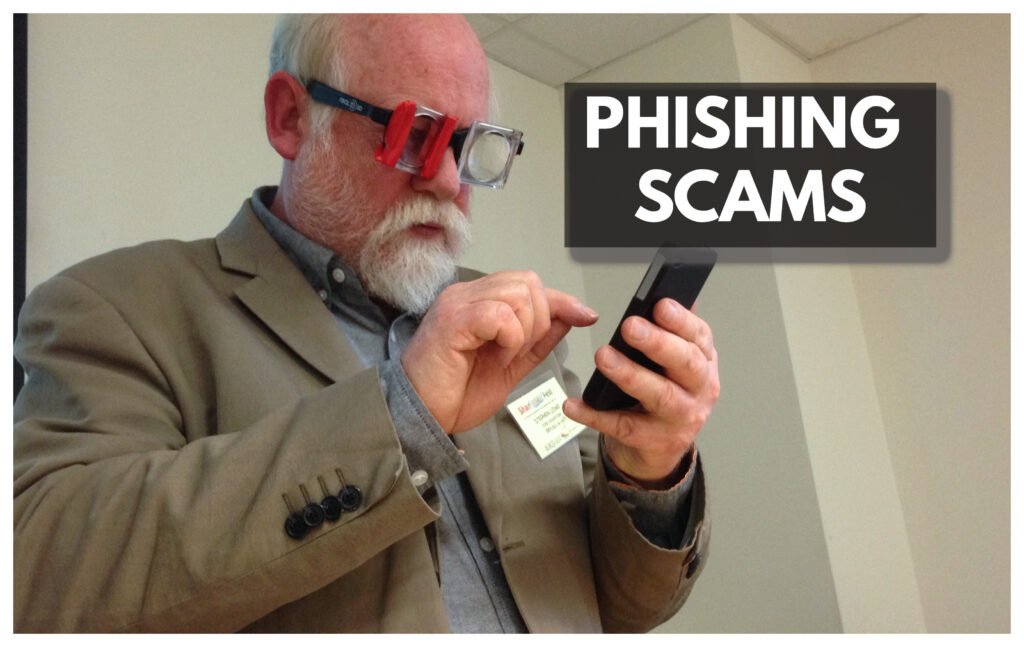Last Updated on June 27, 2025 by Julian Espinosa
Are you concerned about protecting yourself or your loved ones from increasingly sophisticated scams? You have good reason to be vigilant. Recent data shows an alarming rise in scams targeting seniors, with fraudsters now employing artificial intelligence and other cutting-edge technologies to create more convincing deceptions.
This comprehensive guide reveals the 9 most prevalent scams affecting seniors this year, from AI voice cloning that mimics family members to fraudulent investment opportunities with “guaranteed” returns. We’ll walk you through practical strategies to identify these scams, protective measures you can implement today, and valuable resources designed specifically to keep seniors safe.
Financial security begins with awareness—are you ready to empower yourself with the knowledge to stay one step ahead of scammers?
Top 9 Emerging Scams Targeting Seniors: How to Spot and Avoid Them
Why are seniors often targeted by scammers? The answer lies in a combination of factors that scammers cleverly exploit. Many seniors have financial stability from retirement savings and steady income. Some may experience isolation, mobility challenges, or live far from family, making them more receptive to connection opportunities—whether genuine or not.
The digital divide adds another layer of vulnerability, as navigating online environments might be less intuitive for those who didn’t grow up with this technology. Perhaps most significantly, many seniors were raised in an era that valued trust and courtesy, making them less inclined to question suspicious requests or hang up on someone who seems to need help.
Scammers understand these dynamics all too well. They’re now combining social manipulation tactics with sophisticated technology like AI voice cloning to create scams that can fool even cautious individuals. This evolving landscape of deception requires heightened awareness and new protective strategies.
Let’s explore the eight most prevalent scams targeting seniors and learn how to recognize and avoid them.
Prefer to listen rather than read?

AI Voice Cloning Scams
Imagine answering your phone to hear your grandchild’s voice urgently requesting money for an emergency. The voice sounds exactly like them—the same inflections, speech patterns, and even pet names they use for you. This distressing scenario is increasingly common due to artificial intelligence voice cloning technology.
Fraudsters need only a small audio sample (often gathered from social media videos) to create a convincing voice replica of your loved one. They’ll typically claim to be in trouble—perhaps detained while traveling or injured in an accident—and request immediate financial assistance.
How to Protect Yourself:
- Always verify emergency requests through an alternate contact method
- Establish a family code word for genuine emergencies
- Ask personal questions that only the real person would know
- Be suspicious of any urgent money transfer request, regardless of how convincing the voice sounds
- Call your family member on their known number to confirm any concerning situations
Fake Charities
The generosity and kindness that characterize many seniors’ approach to life make them particularly vulnerable to charity scams. These schemes typically begin with a fraudulent charity requesting donations for causes that naturally appeal to compassionate individuals—helping sick children, supporting veterans, or assisting disaster victims.

Fraudulent Charity Requesting Donations
Typically, these scammers contact you through email, direct mail, phone calls, or even social media. They may create emotional appeals, claim to represent well-known organizations, or invent charities with names that sound similar to legitimate ones. They often apply pressure techniques, suggesting the need is urgent and immediate action is required.
Scammer’s Tactics
Fraudsters use high-pressure tactics to persuade seniors to donate quickly, claiming these donations are tax-deductible. Unfortunately, when seniors make donations to these scammers, the money never reaches those in need—it goes straight into the scammers’ pockets.
What to Do to Avoid Fake Charity Scams?
Before supporting any charity, verify its legitimacy on the IRS website. Take time to research the organization’s mission, history, and reviews from other donors. Always ask specific questions about how donations will be used and where the funds will go.
For your own protection, get a donation receipt that includes the charity’s official name and tax identification number. This documentation is essential for tax purposes and provides a record of your contribution.
Phishing Scams
These cybercrimes involve criminals using emails and fraudulent websites to steal sensitive information such as usernames, passwords, and credit card details. They accomplish this by pretending to be legitimate companies or organizations that you might already trust.
Scammers often use social engineering techniques to trick victims into providing this information. For example, they might create an email that appears to come from your bank, claiming there’s an issue with your account that requires immediate attention. The email typically contains a link to a fake website that looks remarkably similar to the legitimate one.

Click Bait
Cybercriminals may employ various tactics to trick individuals into providing their login details. They might design a counterfeit website resembling a legitimate financial institution. When unsuspecting victims enter their information, the criminals gain unauthorized access to their accounts, potentially resulting in theft of funds or identity fraud.
Seniors are particularly vulnerable to phishing scams due to a potential lack of familiarity with digital security best practices. Many seniors using email or text messaging may be more easily tricked into providing personal information such as passwords or account numbers.
What to Do to Avoid Phishing Scams?
Stay alert to the potential dangers of phishing scams and take steps to protect yourself. Avoid clicking on unknown links or downloading attachments from unrecognized senders, as these could lead to malicious software installation on your devices.
Be especially wary of unexpected emails from seemingly legitimate sources that look suspicious or contain unusual requests. Before taking any action, double-check the sender’s address and verify the legitimacy of any links by hovering over them (without clicking) to see the actual destination URL.
Investment Fraud
Investment fraud remains one of the most common scams targeting seniors this year. Fraudsters use various tactics to con seniors out of their money, such as offering investments with guaranteed high returns, unsolicited investment advice, requests for upfront payments, and playing on seniors’ emotions by invoking fear.
Be Careful of Unrealistic ROI
Many seniors are promised unrealistic returns on investments or told their money is safe and secure when in reality the investment is risky or fraudulent. Scammers use false or misleading information to convince seniors to invest in their scheme.

These Type of Scams Are “Too Good to Be True”
It’s important to be aware of the warning signs of investment fraud, such as unsolicited offers, promises of quick and easy profits, and high-pressure sales tactics. Seniors should always be wary of any offer that seems “too good to be true” and take steps to verify the legitimacy of any investment before they commit to it.
In addition to using high-pressure sales tactics, scammers may also try to use false urgency to pressure seniors into making investment decisions quickly. In some cases, they may even offer investments that are not registered with the Securities and Exchange Commission (SEC). Without registration, investors have no assurance that the investment is legitimate and could be putting their hard-earned money at risk.
It’s important to be wary of any investment that is not registered with the SEC, as it could be a sign of fraud. Furthermore, if someone is pressuring you to make a decision quickly, it is important to take a step back and thoroughly research the opportunity before investing to make sure it is legitimate.
Medicare Fraud
Medicare fraud costs the US government billions of dollars annually in false claims. This type of fraud typically involves someone claiming to be a Medicare representative and asking for personal information, or offering a free medical device or service in exchange for Medicare information.
Unfortunately, seniors are especially vulnerable to this type of fraud, as they may not be aware that they should never provide Medicare information to anyone outside of their doctor’s office. Common scams targeting seniors include false claims for equipment, services, or supplies that were never received.

This type of fraud typically involves someone claiming to be a Medicare representative and asking for personal information. The best way to protect yourself from Medicare fraud is to always be extra careful with giving out personal information over the phone or online.
Fraudsters often attempt to gain access to sensitive information like Medicare numbers and other personal details. To stay safe, never give out your Medicare information unless you are absolutely certain that the person you are speaking with is legitimate.
What to Do to Avoid Medicare Fraud?
If someone calls you claiming to be from Medicare, hang up and call the Medicare customer service line to verify if the person is who they claim to be. Similarly, if you receive an email claiming to be from Medicare, don’t open it and contact the Medicare customer service line to confirm its legitimacy.
Be on the lookout for charges that you do not recognize or do not remember making, as this could indicate fraudulent activity. Also be aware of any discrepancies in the amounts charged, as this could also be a sign of fraudulent activity.
If you suspect any fraudulent activity, contact your local Medicare office immediately. It is also wise to review your Medicare statement regularly to ensure that all of the information is accurate and up-to-date.
Fake Lotteries
Fake lotteries have been targeting seniors for many years. This scam is particularly dangerous as it preys on the fact that older individuals may not be as tech-savvy as younger generations and, therefore, more vulnerable to falling prey to these schemes.
Scammers employ diverse tactics to exploit victims, including sending deceptive emails or postcards resembling legitimate lottery notifications and falsely declaring recipients as winners of substantial cash prizes. Additionally, they may impersonate lottery officials when contacting victims by phone, coercing them to disclose personal information or send funds to collect their supposed winnings.

Lottery scam artists typically claim the recipient has won a large sum of money in a lottery or sweepstakes that they never entered. These fraudulent communications often look extremely legitimate, with official-looking letterheads, seals, and even forged signatures.
These communications typically inform the recipient that they’ve won a prize but need to pay fees or taxes up front before receiving their winnings. Scammers may request banking information, copies of identification documents, or even request wire transfers to cover these supposed fees.
This scam works because it creates a powerful emotional response—who wouldn’t be excited about an unexpected windfall? Once emotionally invested, victims may be less inclined to question the legitimacy of the offer or recognize red flags.
What to Do to Avoid Lottery Scams
Always be suspicious of lottery or sweepstakes prizes that you never entered. Legitimate lotteries never require advance payment of fees or taxes to claim a prize. This alone is a major red flag for fraud.
Take time to carefully research before responding to any lottery or sweepstakes notice. Check the official rules and regulations and understand the true cost of entry. You can also contact your state’s gaming commission to verify if a lottery is legitimate.
If contacted by someone claiming to be a representative of the lottery or sweepstakes, be sure to confirm their identity and contact the lottery or sweepstakes directly to verify the information provided.

Identity Theft
Identity theft has become increasingly common this year due to advancements in technology and the prevalence of digital channels. Identity theft occurs when a person uses another individual’s personal information, such as Social Security numbers, credit card numbers, or bank account information, without their permission, in order to make purchases, open new accounts, commit fraud, or even commit a variety of crimes.
It is especially common among seniors because they are more likely to be targeted by scammers and may be less tech-savvy than younger generations. Additionally, due to their age, seniors may not be as aware of the potential risks associated with online transactions, making them more vulnerable to the dangers of identity theft.
Social media account identity theft is a serious and dangerous problem, particularly for seniors who may not be aware of the risks associated with online identity theft. The risk of identity theft increases as seniors become more active online and share personal information with friends and family.

In addition to the financial repercussions of identity theft, seniors should also be aware of the emotional toll it can take on them. While the financial losses can be devastating, it can also be embarrassing and emotionally damaging for an elderly person to have their identity stolen.
Seniors must become educated on the risks associated with online activities and take measures to ensure their personal information is secure. This includes using strong passwords for accounts, avoiding suspicious emails and websites, and never sharing sensitive personal information, such as Social Security numbers.
Romance Scams
Romance scams targeting seniors are becoming increasingly common as more adults join online dating sites and social media platforms. These scams are particularly effective because they exploit human emotions and the natural desire for connection and companionship.
Unfortunately, seniors are frequently targeted by scammers due to their perceived vulnerability and potential financial resources. Romance scams typically involve a scammer posing as a romantic partner to gain trust and access to their victim’s finances. The scammer will pretend to be someone who is genuinely interested in a relationship with the senior.

Warning Signs of Romance Scams
These include being asked for money early in a relationship, promises to meet in person that are repeatedly canceled due to “emergencies,” reluctance to video chat or meet face-to-face, and rushed expressions of love. Scammers often claim to be working overseas, in the military, or in positions that explain why they cannot meet in person.
Requests for money frequently involve supposed emergencies, business opportunities, travel expenses to visit you, medical expenses, or visa/immigration fees. Their stories tend to become increasingly dramatic and urgent as the relationship progresses.
Seniors may be more susceptible to romance scams because they may be experiencing loneliness after losing a spouse or as children move away. Their desire for companionship can make the attention and affection shown by scammers particularly appealing.
Online Shopping Scams: Bogus Offers
Online shopping scams targeting seniors are bogus offers that can have serious financial repercussions if taken advantage of. These scams targeting seniors often involve fraudulent sellers who make offers that seem too good to be true. Unsuspecting seniors may be tempted to take advantage of the “great deal” or “once-in-a-lifetime opportunity,” but it is important to remember that if it seems too good to be true, it most likely is not legitimate.
Scammers are becoming increasingly sophisticated and can be difficult to spot. They may offer discounts on items that don’t actually exist or ask for payment in advance for items that will never be shipped. Additionally, they may use deceptive marketing tactics such as fake emails, pop-up ads, or even fake websites to lure unsuspecting customers.
Make sure to read reviews and compare prices to ensure that you are getting the best deal. Seniors should be especially cautious when shopping online, as scam artists often target this age group in particular. It’s important to research any offers before providing payment and to always use a secure payment method if purchasing something online.
It’s also helpful to review the website’s privacy policy, as well as the company’s contact information.

It is highly recommended to use caution when viewing emails or ads that sound too good to be true, as they may be associated with a fraudulent scam. Taking the proper steps to protect yourself can help reduce the chances of falling victim to scams targeting seniors.
How to Fight Back: 6 Expert Tips
Empowering seniors to defend themselves against fraud begins with practical, expert-recommended strategies. In this section, we outline six actionable tips that have proven effective in combating scams targeting older adults. Each tip is designed to reinforce vigilance, reduce risk, and promote informed decision-making.
- Verify Unexpected Calls and Communications:
- One of the most effective ways to protect yourself is to verify the authenticity of any unexpected communication. If you receive a call or message claiming to be from a government agency, financial institution, or even a relative in distress, do not act immediately.
- Instead, hang up or set aside the message, and then contact the organization directly using a phone number or email address obtained from their official website.
- This small step can prevent a moment of panic from leading to irreversible actions, such as wiring money or sharing personal information. It is also advisable to question any urgency in the request, as genuine representatives typically provide you with time to verify details.
- Enable Two-Factor Authentication (2FA):
- Strengthening your online security is critical. Enabling two-factor authentication on bank accounts, email accounts, and other critical services adds an extra layer of protection. Even if scammers manage to obtain your password, 2FA can prevent unauthorized access by requiring an additional verification step. This extra safeguard is a simple yet powerful tool in protecting sensitive information and reducing the risk of identity theft.
- Educate Family and Friends:
- Fraud prevention is a community effort. Share scam alerts and best practices with family members and friends, especially those who may also be at risk. Resources like the FTC’s Consumer Sentinel Network offer up-to-date information on current scams and can help everyone in your circle stay informed. By educating your support network, you create a system of checks and balances that can catch potential fraud before it escalates.
- Never Share Personal Information Over the Phone or Online:
- Your Medicare number, Social Security number, passwords, or any other sensitive information should remain private. Legitimate organizations will rarely, if ever, ask for such details unsolicited. Be particularly cautious with unsolicited calls or emails, and always verify the legitimacy of the request before sharing any information. This rule is especially important in situations where the caller creates a sense of urgency.
- Use Call Blockers and Spam Filters:
- Technological solutions such as call blockers (for example, Nomorobo) and spam filters provided by phone carriers can help reduce the number of unwanted calls. These tools are designed to identify and block known scam numbers and suspicious communications, thereby reducing the chances of falling victim to a scam. Regularly update these tools to ensure they are effective against the latest tactics used by fraudsters.
- Report Suspicious Activity Promptly:
- If you encounter a suspicious call, email, or other communication, do not hesitate to report it. Filing a complaint with the FTC at ReportFraud.ftc.gov and notifying local law enforcement can help authorities track and dismantle fraudulent operations. Prompt reporting not only aids in your own protection but also contributes to a broader effort to safeguard the senior community from scammers.
Implementing these six expert tips can significantly reduce the risk of falling victim to scams. By staying vigilant, leveraging technology, and maintaining open lines of communication with trusted individuals, seniors can create a robust defense against fraud. The combination of practical measures and proactive education is key to ensuring long-term security and peace of mind in a landscape where scammers continue to evolve their tactics.
Free Resources for Seniors
Access to trusted resources is essential for seniors to stay informed and protect themselves from emerging scams. Fortunately, several organizations offer free services, helplines, and educational materials specifically designed to empower older adults in the fight against fraud.
One of the most notable resources is the AARP Fraud Watch Network. This organization provides a dedicated helpline (1-877-908-3360) where seniors can obtain guidance, report suspicious activities, and receive up-to-date alerts on current scams. The AARP Fraud Watch Network also offers educational materials and community outreach programs that help seniors understand the latest threats and learn practical ways to avoid becoming victims.
For those seeking to deepen their understanding of online safety, the recommended read “Scam Me If You Can: Simple Strategies to Outsmart Today’s Rip-off Artists” by Frank Abagnale offers insights into the practical steps seniors can take to protect themselves online. Written in accessible language, this guide covers topics such as identifying phishing emails, setting up secure online accounts, and understanding the basics of digital privacy. Its emphasis on actionable advice makes it an essential tool for anyone looking to bolster their cybersecurity practices.
Local community centers, libraries, and senior centers offer free workshops on digital literacy and fraud prevention. Topics include call blockers, social media privacy, and common scams. Participating in these programs helps seniors learn new skills and connect with peers. The FTC’s Consumer Sentinel Network provides free databases of reported scams for staying informed and verifying suspicious offers.
By taking advantage of these free resources, seniors can arm themselves with knowledge and support, significantly reducing the likelihood of falling victim to scams. The information provided by these organizations is continually updated, ensuring that seniors have access to the latest advice and strategies in a rapidly changing digital environment. In essence, these free resources form a robust support network that can empower seniors to confidently navigate both online and offline spaces while safeguarding their personal and financial well-being.
Conclusion
Being aware of the most common scams targeting your age group is essential for your protection. Staying informed and remaining alert to suspicious activity can help you avoid becoming a victim and empower you to help others in your community stay safe too.
Have you encountered any of these scams, or do you have additional tips for protecting yourself? We’d love to hear your experiences and insights in the comments section below. Remember, sharing your knowledge helps everyone in our community stay safer!
Frequently Asked Questions
- How can I verify if a charity is legitimate before donating?
- Always research charities before contributing by checking their status on the IRS website (irs.gov/charities-non-profits). Look for reviews from independent charity evaluators like Charity Navigator or GuideStar. Request detailed information about how donations are used and ask for their tax identification number. Legitimate charities will happily provide this information.
- What should I do if I suspect I’ve been targeted by a Medicare scam?
- Immediately contact Medicare’s official fraud hotline at 1-800-MEDICARE (1-800-633-4227). Don’t share any personal information with the suspected scammer. Document all details of the interaction, including phone numbers, names used, and what information was requested. Review your Medicare statements carefully for any unauthorized charges.
- How can I protect myself from AI voice cloning scams?
- Establish a family code word for emergency situations that only family members would know. Always verify requests for money by calling the family member directly on their known number—not the number that called you. Ask personal questions that would be difficult for a scammer to answer correctly. Consider implementing a “no emergency money requests by phone” family policy.
- Are there any warning signs that an investment opportunity might be fraudulent?
- Be cautious of investments promising guaranteed high returns with little or no risk, pressure to “act fast” before an opportunity disappears, lack of proper documentation or reluctance to provide written information, complex strategies that the promoter has difficulty explaining clearly, and unregistered investments. Always check if the investment professional is licensed through the SEC’s Investment Adviser Public Disclosure database.
- How can seniors with limited technical knowledge protect themselves online?
- Consider taking free computer classes specifically designed for seniors at local libraries or community centers. Use simplified security tools like password managers to create and store strong passwords without having to remember them all. Set up automatic updates on devices to ensure security patches are installed. Consider having a trusted family member regularly review your online accounts and security settings.
- What new scams should seniors be particularly watchful for this year?
- Be vigilant about AI deepfake video calls that might appear to be from family members, QR code scams that direct to fraudulent websites, crypto recovery scams promising to retrieve lost cryptocurrency investments, vaccine or health crisis scams related to emerging health concerns, and smart home device hacks that could compromise your privacy and security.
- How can family members help protect their senior loved ones from scams?
- Maintain regular, open communication about financial matters and potential scams. Offer to help set up security features on devices and accounts. Consider setting up alerts for unusual financial transactions. Create a trusted contact arrangement with financial institutions. Most importantly, approach conversations with respect, focusing on empowerment rather than suggesting inability to manage affairs independently.
- Is there a way to check if my personal information has been compromised in a data breach?
- Yes, visit haveibeenpwned.com to check if your email address has been involved in known data breaches. If your information has been compromised, change passwords immediately, enable two-factor authentication where available, and monitor your accounts closely for suspicious activity. Consider placing a credit freeze with the major credit bureaus for additional protection.
References
- Federal Trade Commission. (2024). “Protecting Older Consumers: A Report on Fraud Impacts.”
- AARP. (2024). “Money, Scams and Fraud.”
- U.S. Department of Justice. (2024). “Elder Justice Initiative: Financial Exploitation.” justice.gov/elderjustice
- Medicare.gov. (2024). “Reporting Medicare fraud & abuse”
- Consumer Financial Protection Bureau. (2025). “Money Smart for Older Adults Resource Guide.”
- FBI Internet Crime Complaint Center. (2021). “Elder Fraud Annual Report.”



